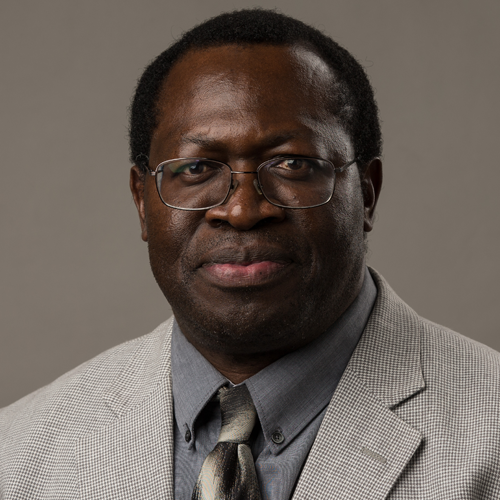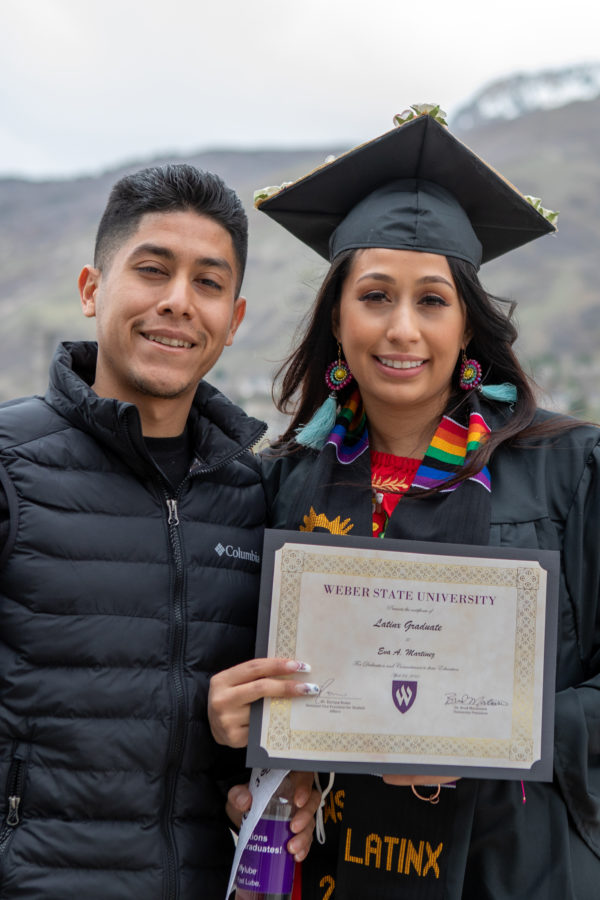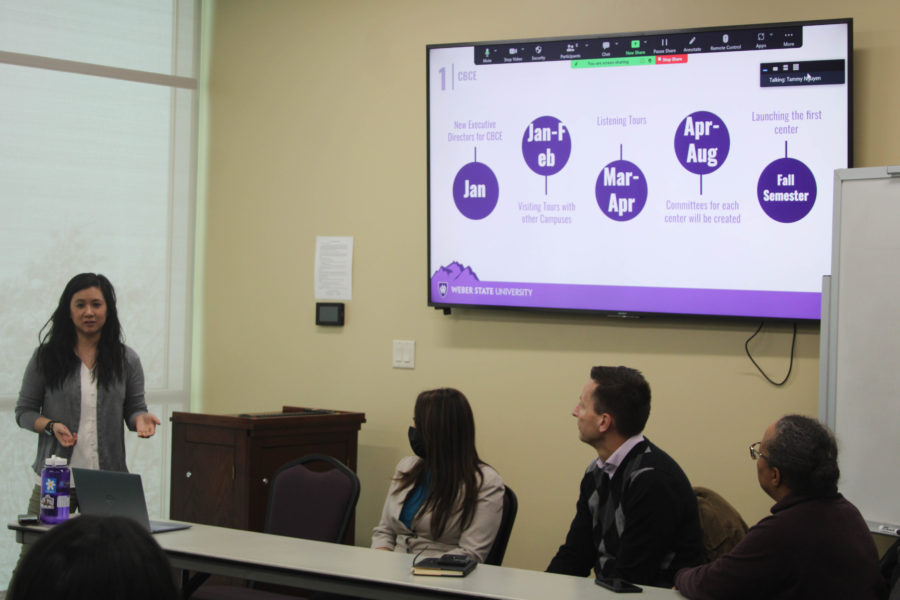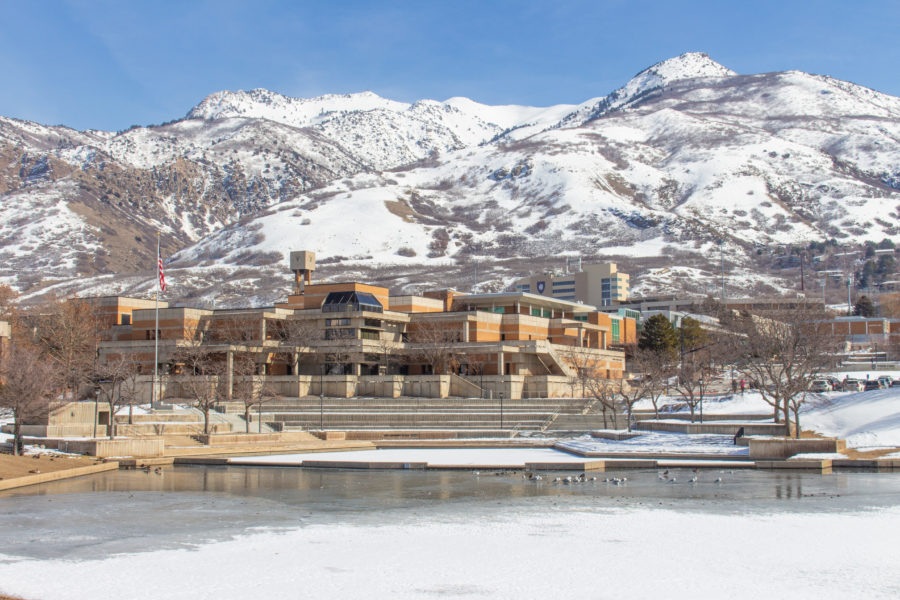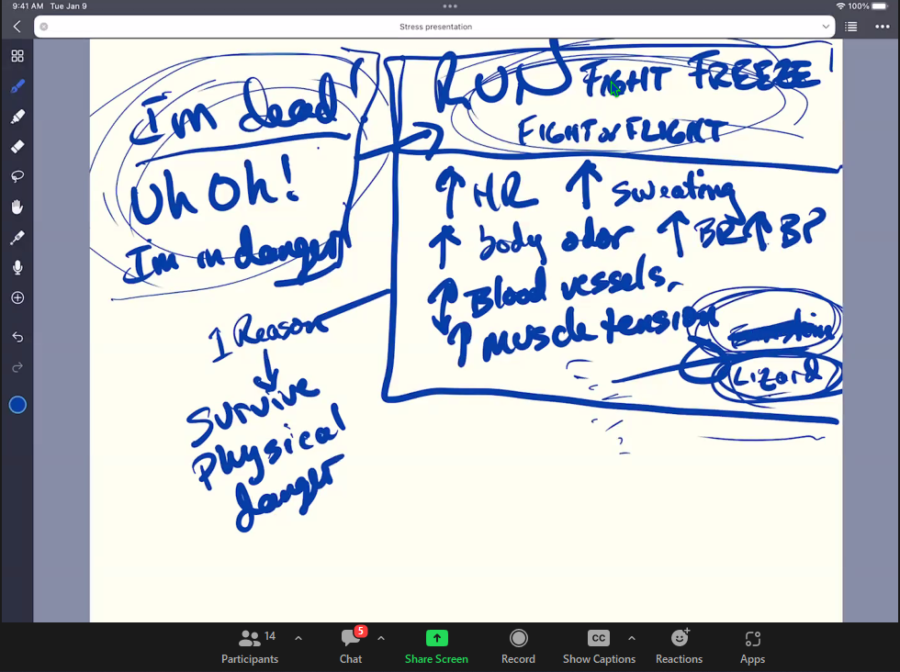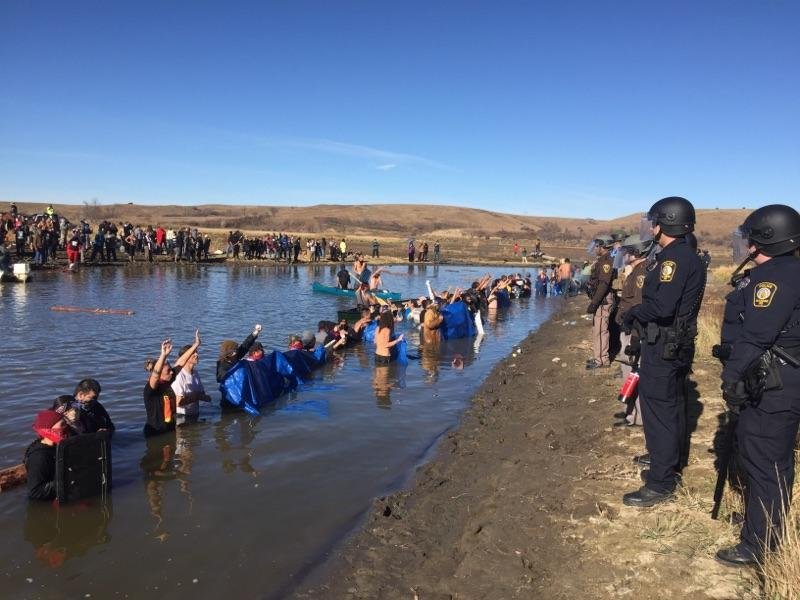
On Nov. 3, the Diversity Center hosted its regular Taboo Talk in the Shepherd Union Building as part of the Native Symposium taking place through Nov. 10.
The question of the panel was, “Does persecution still exist in the Native community?”
The first topic of the discussion was boarding schools, such as the Intermountain Indian Schools in Utah.
Native children were taken to these schools as recently as the 20th century as part of a plan by the U.S. government to acculturate Native Americans into broader American culture.
Diane Newham, a panelist for the talk, said, “Children died, pulled from their families to be assimilated into white culture.”
The panelists spoke of the effects the boarding schools had on students. Another panelist, Saani Atsitty, spoke about her father and how he was placed in the boarding schools.
“He said he felt like he was being dipped from one culture to the other,” Atsitty said.
The panelists also stated that many children who were brought to the schools were shackled so they would not run away and were forced to speak English. Their hair, a symbol of a person’s strength in many Native American cultures, was cut short.
A significant number of these programs did not end until the late ’80s and early ’90s.
According to the panelists, the conditions of the boarding schools were so traumatic that they often led to PTSD and alcoholism for those who attended.
Tashina Barber, Native American adviser on campus, pointed out that not all Natives have the same experiences. She said, “I have my own experience, and I can’t be the spokesperson for all Natives. All tribes are different; we have different cultures, different languages, different ceremonies. But what brings us together is our history.”
The panel took time to discuss more modern issues as well, such as the Dakota Access Pipeline, a proposed pipeline that would bring crude oil from North Dakota to Illinois.
The pipeline would pollute nearby water sources for the Standing Rock Indian Reservation, and the pipeline crosses through Native American sacred lands.
Protesters at Standing Rock have been shot with rubber bullets, pepper sprayed and jailed, according to the panelists at the discussion.
Although this is happening in North Dakota, there are Ogden residents who are being affected, such as Amy Wicks. Wicks is an enrolled member of the Cheyenne River Sioux Tribe and an Ogden resident who attended the panel discussion.
“I’ve been aware of persecution issues since I was a small child … I think that we have a long history in this country of putting pipelines and polluting things in communities of color because it’s easier,” Wicks said. “They don’t have the resources to fight it, and it’s just something that has to stop … I have lots of relatives there … There’s militarized police attacking peaceful protectors, and that hurts to see. That really kind of wrecks you.”
The panel concluded with Newham performing a prayer song for those in Standing Rock and with panelists offering suggestions for those who want to help but cannot attend the protest themselves.
As the protests are expected to last through the winter, the panelists suggested sending letters, postcards, blankets and clothing.
The last Native Symposium events will be happening Nov. 10. There will be a sunrise ceremony by the Browning Center flag poles at 7 a.m., followed by keynote speaker Dr. Darryl Tonemah at 9 a.m. and a panel discussion at 10:30 a.m. The Symposium will conclude with a discussion and luncheon in the Shepherd Union Ballroom C at noon (RSVP only).









